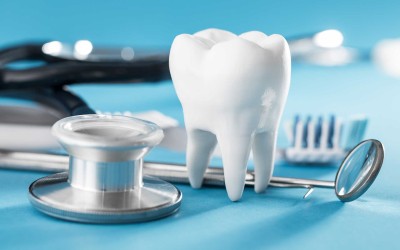7 Tips for Successful Implant Treatment

7 Tips for Successful Implant Treatment
- 11 March 2025
- 4688 views
Discover key tips for implant treatment. Learn how to achieve a healthy smile and take action!
This content is for informational purposes only and does not replace medical advice, diagnosis, or treatment. Please consult a healthcare professional for any health concerns.
Table of Contents
Implant treatment offers a functional and aesthetic solution for missing teeth. However, successful results depend not only on an experienced dentist but also on the patient's care throughout the process. So, what should be considered to ensure long-lasting and problem-free implant treatment?
What Is Implant Treatment and Why Is It Preferred?
Implant treatment involves placing artificial tooth roots in place of missing teeth. These titanium structures integrate with the jawbone, functioning like natural teeth. Implants offer advantages such as an improved appearance, comfort while chewing, and durability, making them one of the most effective solutions for individuals with tooth loss.
Key Considerations for Implant Treatment
To achieve successful results from implant treatment, here are some important points to consider:
Choose a Qualified Dentist
A successful implant treatment starts with selecting the right dentist. An experienced and specialized dentist ensures the smooth progression of the treatment. Research your dentist’s education, experience, and patient reviews thoroughly.
Know the Condition of Your Jawbone
Before implant treatment, it's important to assess whether your jawbone has sufficient density. A strong jawbone structure ensures the implant is securely placed. If the bone density is insufficient, bone strengthening procedures can be performed first, which increases the success rate of the treatment.
Be Patient During the Treatment Process
Implant treatment involves several stages. In the first stage, implants are placed into the jawbone. Then, a waiting period of 3 to 6 months is needed for the bone to fuse with the implant. Being patient and following your dentist's recommendations during this time supports the success of the treatment.
Maintain Proper Oral Hygiene
Paying attention to oral hygiene both during and after the treatment is crucial. You should brush your teeth regularly and use dental floss to keep the implant area clean. Neglecting oral hygiene can increase the risk of infection, leading to implant failure.
Eat a Balanced and Healthy Diet
Your eating habits directly affect the success of implant treatment. Avoid hard foods and opt for soft, nutritious options. During the healing period, stay away from extremely hot or cold foods. To support bone and tissue healing, consume foods rich in vitamin C and protein.
Quit Smoking and Alcohol Consumption
Alcohol and smoking can negatively impact the success of implant treatment. Smoking reduces blood flow in the jawbone, slowing the healing process. Alcohol increases the risk of infection in the tissues. It’s important to quit these habits during the treatment process.
Don’t Skip Regular Dental Check-Ups
After completing implant treatment, make sure to visit your dentist regularly. These check-ups help assess the condition of the implants and detect potential problems early. Your dentist will examine the tissues around the implants to ensure the health of your mouth is maintained.
The Key to Success in Implant Treatment: Regular Follow-Up and Care
Achieving successful results from implant treatment isn’t solely the responsibility of the dentist. As a patient, active participation in the treatment process is essential. Paying attention to oral hygiene, maintaining a healthy diet, and keeping up with regular check-ups will ensure the long-term success of your implants.
Frequently Asked Questions (FAQs)
What Is Implant Treatment?
Implant treatment involves placing an artificial tooth root in place of missing teeth, providing the appearance and function of a natural tooth.
Is Implant Treatment Painful?
Local anaesthesia is applied during the procedure, so no pain is felt. There may be mild discomfort during the healing process.
How Long Do Implants Last?
With proper care and regular check-ups, implants can last 20 years or more.
Who Is a Suitable Candidate for Implant Treatment?
It is suitable for individuals with good overall health and sufficient jawbone density.
How Long Does the Treatment Take?
The treatment duration, including the healing time for the jawbone, can take about 3 to 6 months.







